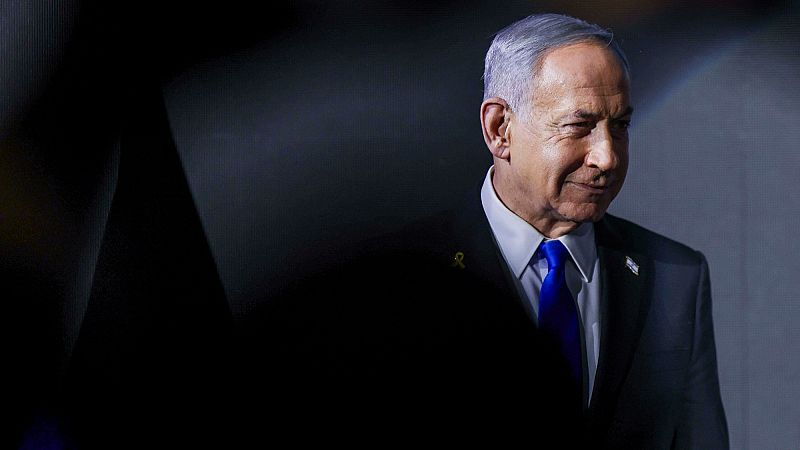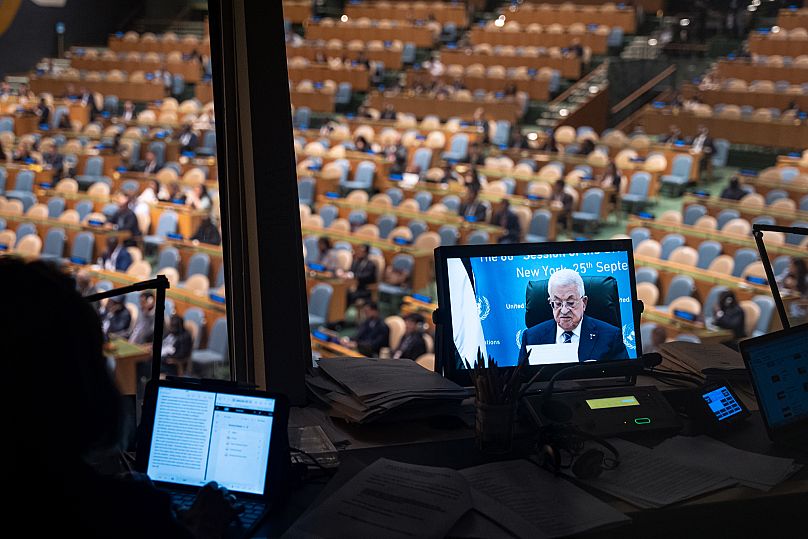Israel's Netanyahu to address UN as pressure over Gaza mounts

Israeli Prime Minister Benjamin Netanyahu will address the United Nations General Assembly on Friday, amid a growing number of countries calling for him to end the Israel-Hamas war in the Gaza Strip.
Netanyahu's annual speech will face increased scrutiny this year, after France, Belgium, Portugal, the UK and others announced their recognition of a Palestinian state — backing the two-state solution Netanyahu has said was a non-starter.
Separately, the European Union issued a package of proposals aimed at sanctioning Israel over its ongoing offensive in Gaza and actions in the West Bank.
The Israeli leader also faces an arrest warrant from the International Criminal Court, which has accused Netanyahu of crimes against humanity. The UN's highest court is also weighing South Africa's allegation that Israel is committing genocide in Gaza.
Israel has vehemently denied both accusations.
Against a backdrop of criticism, Netanyahu said he would "condemn those leaders who, instead of condemning the murderers, rapists and burners of children, want to give them a state in the heart of Israel,” as he boarded a plane from Israel to attend the meeting.
Assembly members express opposition to Israel
Multiple nations formally recognised Palestinian statehood at the special meeting of top leaders in New York this week. This included several Western countries, such as France and the UK, which historically declined to formally recognise a Palestinian state since the State of Israel declared its independence in 1948.
Netanyahu has criticised this push, as well as the notion that a two-state solution would be a viable way to long-term peace in the region, which was shattered in 2023 after Hamas-led militants killed around 1,200 people in an attack on southern Israel.
“I have a clear message to those leaders who recognise a Palestinian state after the terrible massacre of 7 October: You are giving a huge prize to terrorism," Netanyahu said after the UK, Canada, Australia and Portugal made the announcement.
"And I have another message for you: It will not happen. There will be no Palestinian state west of the Jordan,” he emphasised.
The US, which does not recognise Palestine as a state, has so far provided Israel with vociferous support. However on Thursday, US President Donald Trump signalled there were limits, telling reporters in Washington that he would not let Israel annex the occupied West Bank.
Israel has not formally announced such a move, despite members in Netanyahu's cabinet pushing for it. Officials have recently approved a controversial settlement project that would effectively cut the West Bank in two.
Netanyahu's speech was preceded on Thursday by Palestinian Authority (PA) leader and Palestinian President Mahmoud Abbas, who addressed the leaders via video link since he was denied a US visa to attend the session.
Abbas welcomed the recognition but urged leaders to do more in order to make Palestinian statehood a tangible reality.
“The time has come for the international community to do right by the Palestinian people" and help them realise “their legitimate rights to be rid of the occupation and to not remain a hostage to the temperament of Israeli politics,” Abbas said.
The Palestinian Authority, a Fatah party-led body, administers portions of the West Bank. Hamas won legislative elections in Gaza in 2006 before seizing control from Fatah the following year.
Israel captured the West Bank, East Jerusalem and the Gaza Strip in the 1967 Six-Day War, but withdrew from Gaza in 2005. The Palestinians aim for all three to form their state.
Netanyahu opposes it robustly, maintaining that creating a Palestinian state would reward Hamas.
“This will not happen,” he said at the airport Thursday.
Today


